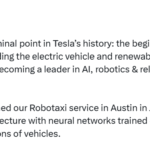From the advent of personal computers and the Internet to smartphones and sophisticated financial software, the profession of financial advice has always been in continual dialogue with technology. However, the rapid rise of artificial intelligence has brought a deeper wave of disruption to the financial advice profession. As clients increasingly expect seamless, automated financial solutions – what might be thought of as ‘self-driving money’ – advisors are left to consider how their roles are evolving and where they can continue to add value.
In this 169th episode of Kitces & Carl, Michael Kitces and client communication expert Carl Richards discuss how AI will reshape the tasks advisors perform and the value they bring to client relationships. Looking back across the decades, the foundational elements of financial planning have remained surprisingly consistent – from discovery meetings to financial plan presentations – as advisors have striven to help people make sense of their financial lives. In fact, as technology solutions have become more sophisticated, some advisors now serve fewer clients more comprehensively.
AI will likely accelerate this trend – not by replacing advisors, but by automating some of the mechanical aspects of planning, including cash flow modeling, tax optimization, and investment rebalancing. As the mechanical side becomes more optimized, the human side of financial advice increasingly becomes the true differentiator. Clients rarely have clear, static goals; their values and priorities evolve over time. Helping clients articulate what matters, navigate trade-offs, and stay emotionally aligned with their plans is a task that remains uniquely human, since even with perfect data and perfect modeling, planning decisions must still be made within the messy context of real lives!
Technical expertise remains essential – not because it alone creates value, but because it underpins the confidence and judgment needed to evaluate outputs, catch errors, and guide clients through complex decisions. In our current era of financial advice, the internet and early iterations of AI can solve many prospective clients’ problems. However, a core segment of the population will always be delegation-oriented, while others will face financial situations so complex that they require an expert’s help. This dynamic may deepen over time; as ‘basic’ financial planning questions become easier to access, the bar for an advisor’s competency may continue to rise. Which means that deeper specialization – whether in a subset of clients or a specific set of financial problems – may help advisors differentiate themselves in the long term.
Ultimately, the key point is that as AI evolves, so will financial advice, stretching advisors to embrace both technical competence and human connection. In the years ahead, the advisors who stand out will help their clients better understand who they themselves are, what they want, and how to leverage their financial resources to get there!











































